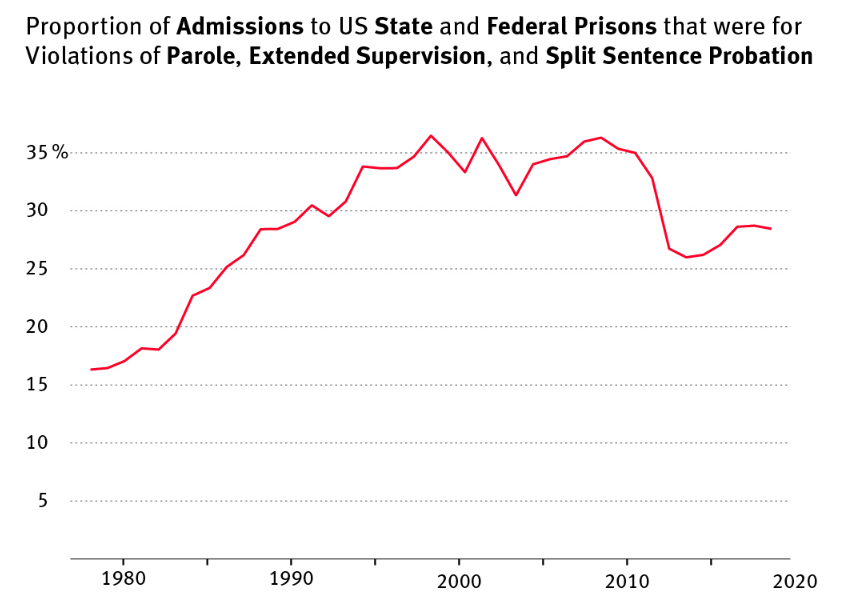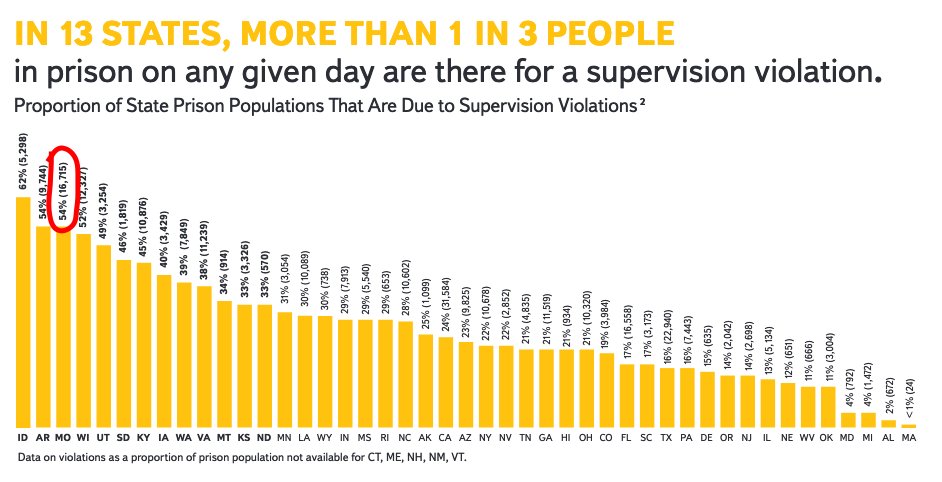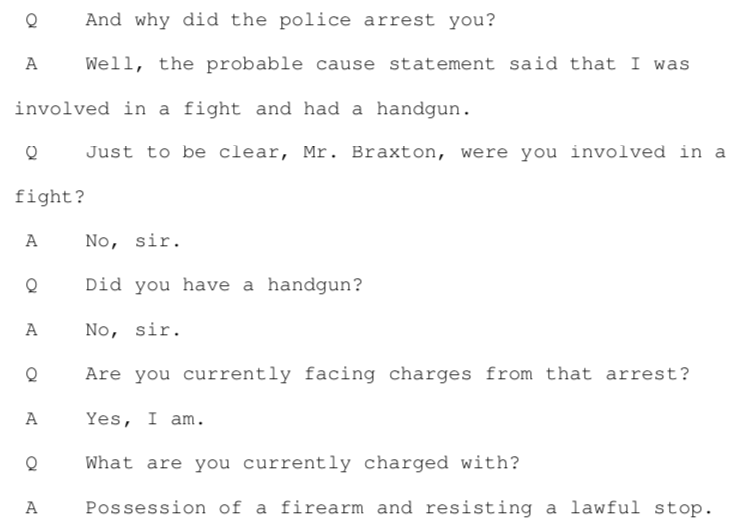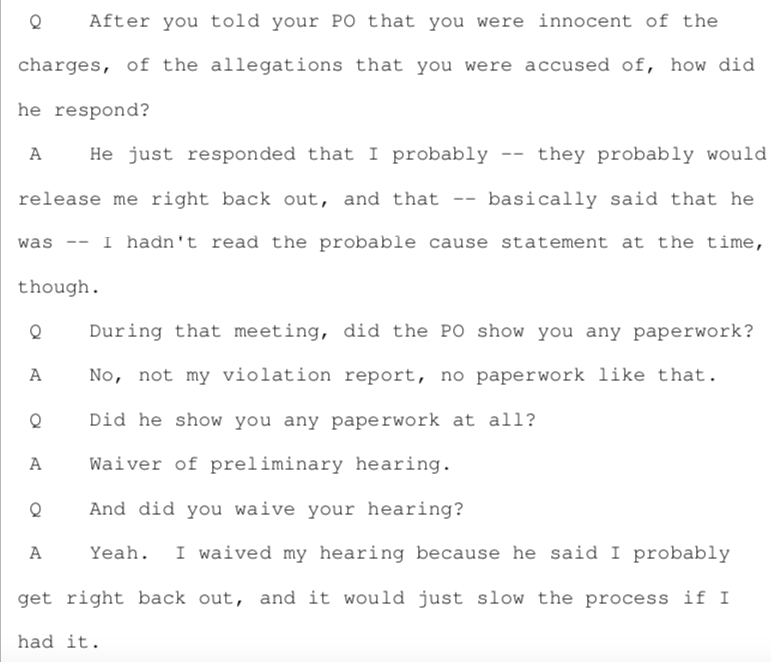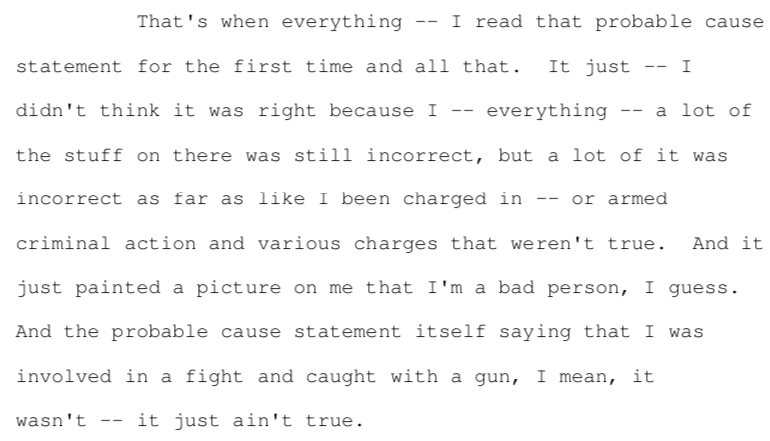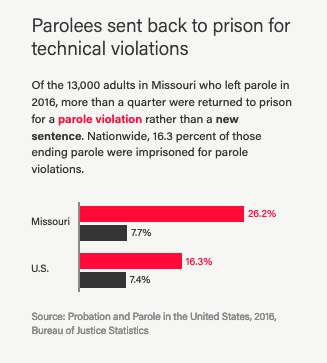Last week, a federal judge ruled that Missouri's process of revoking people's parole and sending them back to jail was unconstitutional, and ordered a set of fixes. https://beta.documentcloud.org/documents/20407036-323_order-on-remedy_20201112
Just to give you a sense of how bad things are in Missouri, one of the fixes is, tell people what rules you've jailed them for breaking. Another is, "Ensure parole officers stop encouraging and pressuring parolees to waive their hearings."
There are 21 required fixes, and 16 "Suggested Changes to Avoid Prolonged Litigation," which is judge-speak for, you'd better make these changes, too, if you know what's good for you. They're based on a pair of Supreme Court rulings from 1972-73.
This order comes 3 years after a class action lawsuit which accused the state's parole system of creating "a procedural vortex from which people on parole cannot escape and are at continual risk of being rearrested and reentered into the prison system.” https://www.themarshallproject.org/2019/02/11/want-to-shrink-the-prison-population-look-at-parole
That suit was filed amid a dawning awareness of just how many people we send to prison each year for behaviors that *aren't crimes.* For the last 20 years, between 1/4 and 1/3 of prison admissions were for violations of probation or parole. https://www.hrw.org/report/2020/07/31/revoked/how-probation-and-parole-feed-mass-incarceration-united-states
In Missouri MORE THAN HALF of people in prison on any given day are there for a probation or parole violation. That's almost 17,000 people!
Just a few months later, the state conceded its system had many problems and pledged to fix them. The judge ruled for the parolees and gave the state a chance to fix things. https://docs.justia.com/cases/federal/district-courts/missouri/mowdce/2:2017cv04149/135166/146
3 years later, it appears most of what the state did was update its "policies and procedures," which is to say, some good changes on paper, not so much on the ground. They've been fighting with the parolees in court ever since about whether their changes are good enough.
They're not. "The Court applauds the significant changes to the system, but notes these issues involve almost 50-year-old Supreme Court precedent," the judge said in his order last week. Which is judge-speak for, WTAH MDOC?
In order to illustrate what this means to people's real lives, I thought I'd introduce you to one of the plaintiffs in the suit. This is Charles Braxton. On parole after serving a 10-yr sentence, he stopped at a McDonald's to get something to eat when he saw a fight outside.
A parole official came to see him in jail the next day, and "I informed him that all you got to do is look at the McDonald's camera and it shows that I'm innocent. That's the only thing I asked him to do," Braxton testified.
Remember those Supreme Court cases? They said if you have an innocence claim you're entitled to a lawyer in a parole revocation matter. They also said a hearing should be held reasonably soon after your arrest.
The officer didn't tell him that. He didn't show him any paperwork. He did encourage Baxter to waive his hearing, telling him he'd probably be out soon anyway and the hearing would slow things down.
The next day, he was sent to prison. Weeks later, another officer came and encouraged him to waive the second of the 2 hearings he was entitled to, arguing, again, it's really not necessary. Braxton did. THEN he finally saw the charges against him--full of inaccuracies, he said.
He sent kite after kite to the parole board, which went unanswered. His parole was revoked, but it took them a month to tell him. He appealed, and it was denied. He spent months in jail for a fight that never happened, which is now on his record, and he never had a lawyer.
In Missouri, more than 3,000 people are sent to prison each year for breaking the rules of their supervision: missing curfew, drinking, skipping appointments. https://www.themarshallproject.org/2019/02/11/want-to-shrink-the-prison-population-look-at-parole
If you want to talk about low-hanging fruit? In a pandemic? "Designed originally as an alternative to incarceration, community corrections has become a significant contributor to mass incarceration," say dozens of *probation and parole administrators*. https://justicelab.columbia.edu/statement-future-community-corrections

 Read on Twitter
Read on Twitter